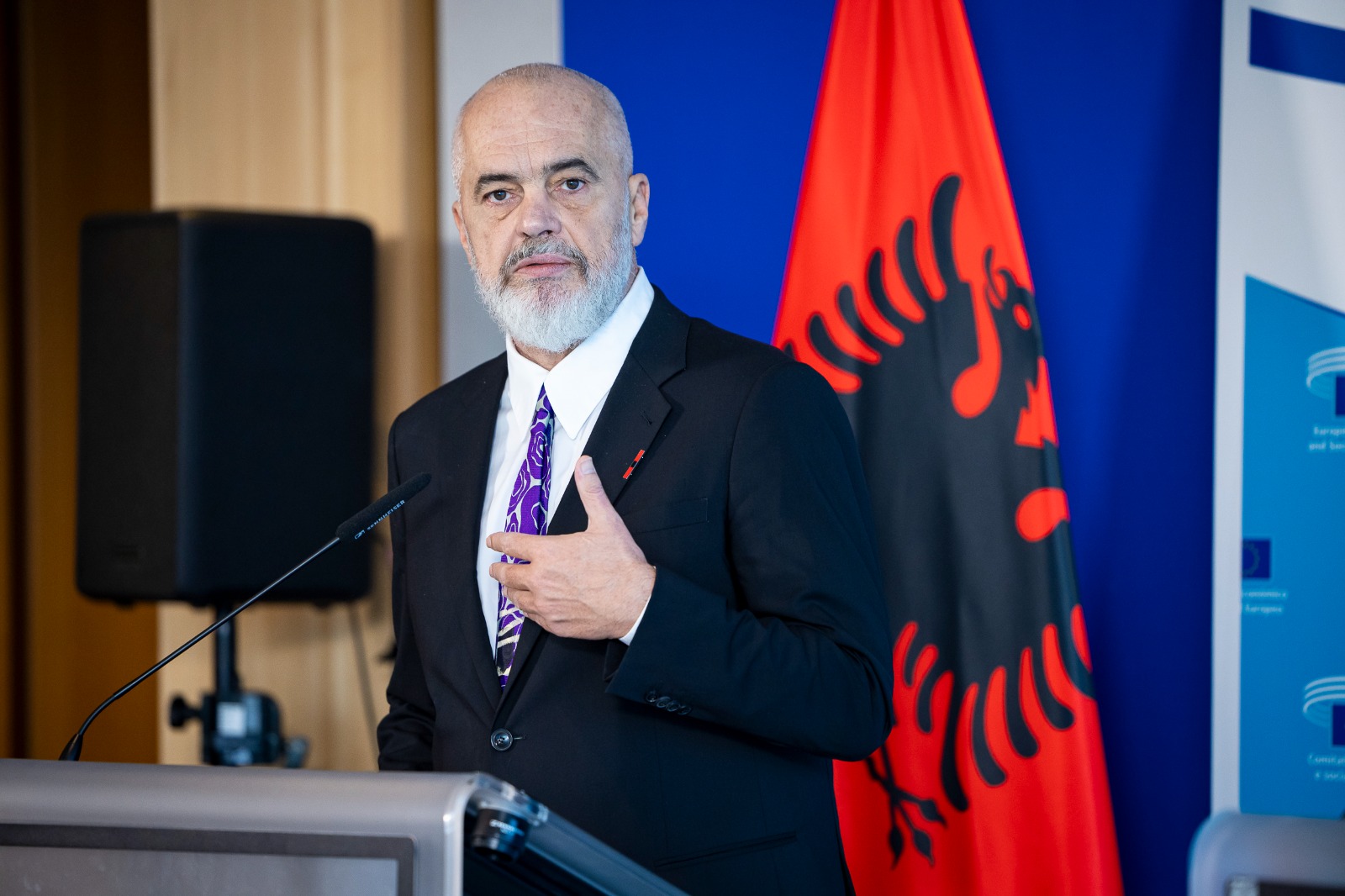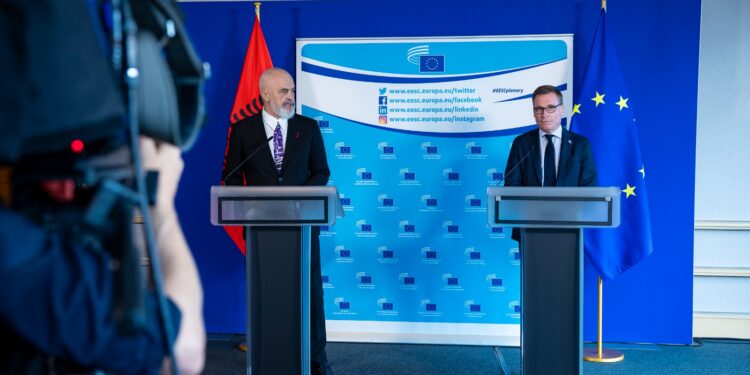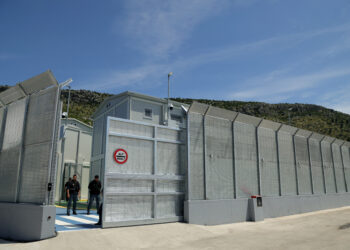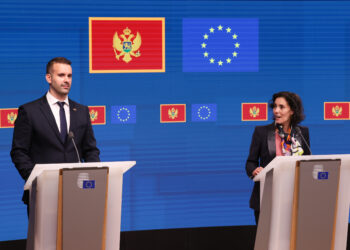Brussels – Delegations of deputies from EU candidate countries to the European Parliament to prevent them—once members in their own right—from being like “Japanese tourists visiting the Louvre.” Following the example of the ongoing pilot project at the European Economic and Social Committee (EESC), the institution that brings together representatives of business, labour, and civil society from the 27. This was suggested by the Prime Minister of Albania, Edi Rama, in Brussels to celebrate the plenary session of the EESC dedicated to Enlargement.
In a press point with EESC President Oliver Röpke, the two announced the establishment of an EU-Albania Civil Society Consultative Commission (JCC). A further “proof of our commitment, but also of the idea that European integration is not just a matter for governments, but belongs to society as a whole,” Rama said. As part of the EESC Enlargement Initiative, funded by the European Commission and in effect since February, 18 representatives of Albanian trade unions, entrepreneurs and civil society are already contributing to the drafting of some of the opinions the institution adopts to affect the legislative process.
Among the objectives of the pilot project is precisely the involvement of the candidate countries on topics where their participation is particularly relevant, primarily legislative opinions related to Enlargement. However, members from the nine candidate countries—Albania, Bosnia and Herzegovina, Georgia, Moldova, Montenegro, North Macedonia, Serbia, Turkey, and Ukraine—are not full members of the committee, cannot have coordinating roles in drafting opinions, and do not have voting rights. The initiative will end in December, but Röpke is “absolutely determined” to get an extension for next year to make it a “permanent structure” in mind. He is confident that “we will find the means to finance it.”

For Edi Rama, the creation of the EU-Albania JCC is a tool “to accelerate an accession process” that began in 2014. And for which the horizon set by Brussels seems to be 2030. The premier said he had submitted to Ursula von der Leyen “152 requests to gain further access in 152 directions of this maze.” A firm believer in the need for gradual integration into the EU, Rama stressed that—as things stand now—”as long as you are in the accession process, you have nothing, then you become a member and have everything. Rights and duties, without necessarily being prepared to exercise the former and observe the latter.
Therefore, in line with Röpke’s appeal to the other institutions, Rama suggested that “we should also be present in the European Parliament, not with MEPs to vote, but with observation teams preparing for the next stage.” Two years ago in Brussels, the Albanian prime minister had compared the European Union to Samuel Beckett, the author of Waiting for Godot, and Albania and Macedonia to the play’s two characters, Vladimir and Estragon. Now “something is changing, it’s a different time,” and the EU “has gone from being our Samuel Beckett” to a phase of “French romantic literature,” Rama joked. He hopes, however, that the strong push for Enlargement triggered by Russia’s invasion of Ukraine will not slumber once the conflict is over.
English version by the Translation Service of Withub








